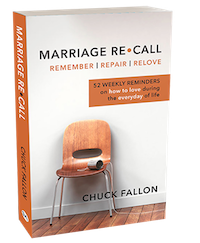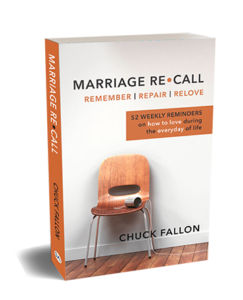We tend to see what we expect to see. More than that, we actually help to promote what we expect to see.
For example, if I think my wife is in a bad mood because of a difficult day at work and I hear her car pull up in the driveway I might tell myself, “Now would be a good time to take the dog for a walk!” So I quickly grab the leash and hustle my dog out the back door. My wife comes in the house, she’s had an average day—not great or terrible, but she wants to tell me something. She can’t find me, the house is unlocked and there’s no note. By the time I get back from my walk, she’s irritated and has a scowl on her face. What do I tell myself? “Aha! I knew she was in a bad mood.”
You see the problem; she wasn’t in a bad mood. I helped to promote what I expected to see. Now let’s be clear. I’m not saying that you and I are responsible for other people’s behaviors. But we do have influence.
How are you influencing your spouse? The problem is that you may be promoting what you expect to see, rather than what you want to see. If you expect a positive outcome, you interact differently, more positively. It doesn’t guarantee success, but greatly increases its likelihood. Michele Weiner-Davis, author of Divorce Busting, calls this technique “Act As If.”
When a marriage struggles and your guard is up, what are you promoting? You can promote affection, kindness, playfulness—the good things you and your spouse signed up for when you said, “I do.” You can change how you engage with your spouse by expecting warmth and cheerfulness, instead of promoting negativity by expecting the worst.
During a session with a delightful couple, the wife accused her husband of being more excited to see the dog when he came home from work than he was to see her. He said, “That’s because the dog runs to the door and wags her tail when I come in.” The session took a humorous twist as she practiced “wagging her tail” so that she could get it right for him in the coming days. We laughed in the session, but more importantly she started wagging her tail when he came home. It was one of the simple but significant changes that propelled them into a deeply satisfying marriage.
How would you act differently if you expected a better response? Are you willing to try? I hope so—and I hope you’ll recognize significant change!
You can do this!




